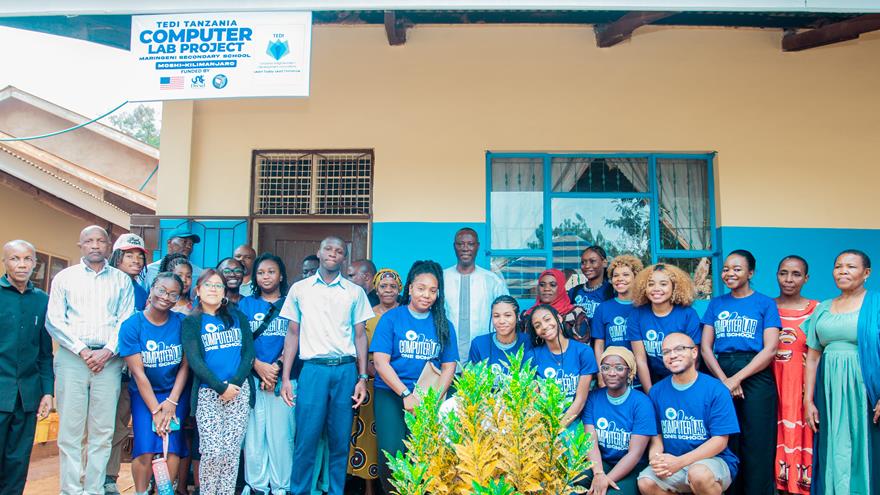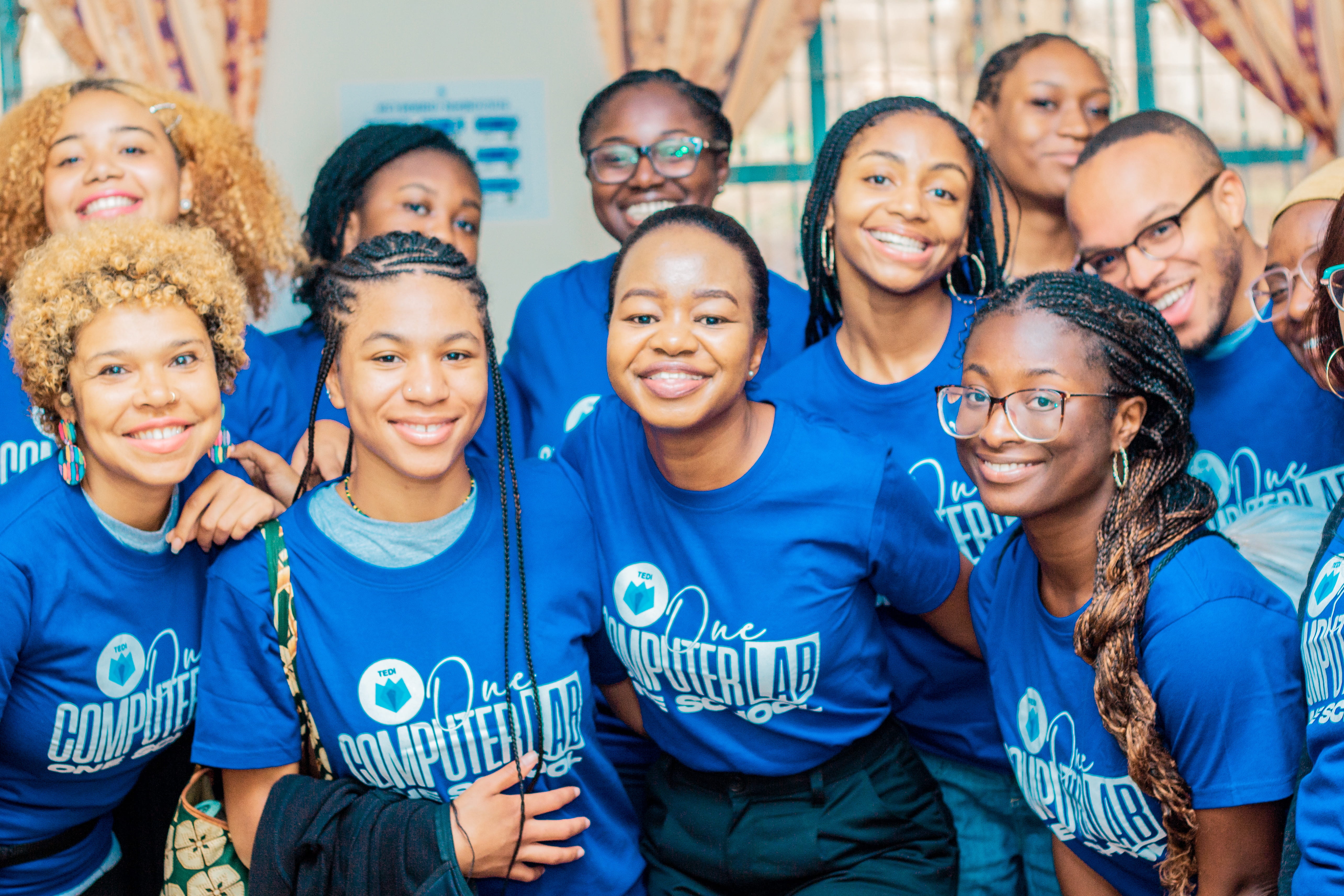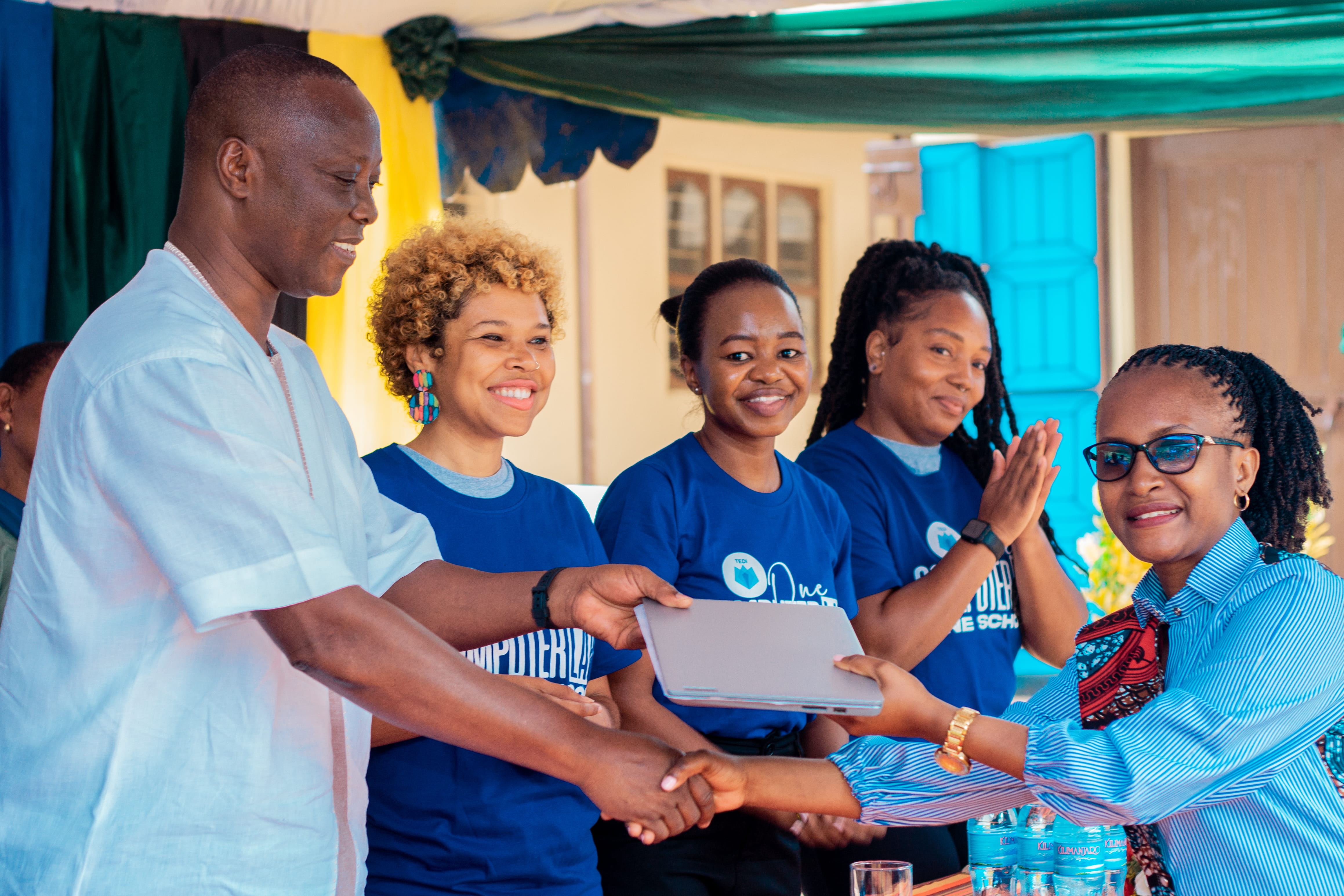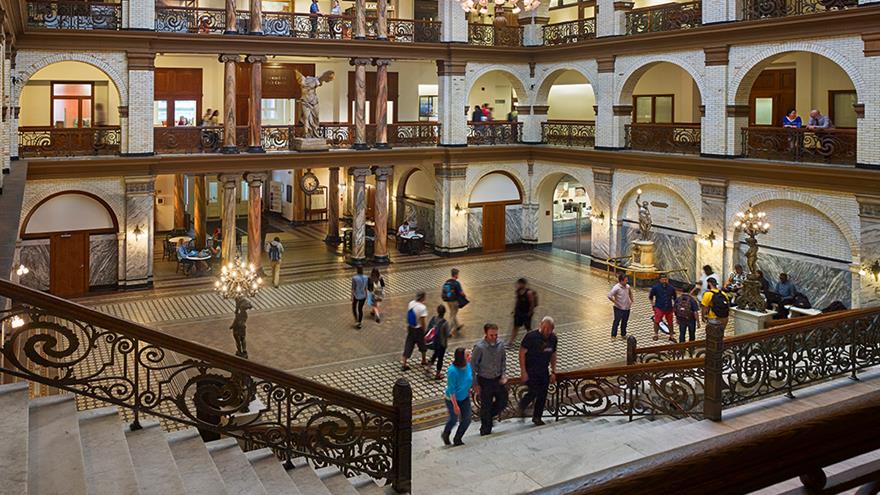Through Connections and Community, Drexel Course Helps Launch Computer Lab in Tanzania

Drexel students interested in participating in the next iteration of this course can learn more about “Drexel Fall Break in Tanzania Culture & Community Development” on the Study Abroad website.
The Drexel University “Culture & Community Development” course lived up to its name as collaborations with five internal and external partners on a school computer lab project also led to additional school and community infrastructure repairs. And while the “Drexel Fall Break in Tanzania” Intensive Course Abroad (ICA) class itself was the first of its kind in many ways, the leadup to the fall 2023 course spanned several years and three continents. Now, the class’s impact will continue to be felt in multiple ways for generations to come.
One of the course’s main goals and subsequent accomplishments was to partner with two on-the-ground organizations to help launch a computer lab at a secondary school in northern Tanzania. That completed goal led to successful outcomes beyond improving digital literacy and access to educational opportunities for 400 young students. To prepare for the computer lab’s opening launch, the school received a new paint job and signage, and the district repaired a road leading to the school, which benefitted the entire area. At the launch, the district commissioner (the area’s highest governing leader) visited the school for the first time and ended up committing $40,000 for the school to receive additional resources and improvements.
“It was amazing to see everything progress from the initial brainstorming to the project growing arms and legs and becoming way bigger than anyone anticipated,” said Senior Director of Education Abroad Ahaji Schreffler, who co-taught the course along with Shardé Johnson, executive director for diversity, inclusion and belonging and director of Drexel’s Center for Black Culture (CBC).
Like all ICA courses, “Culture and Community Development” involved a few weeks of class sessions and community-based learning and training before that term’s break week, which students then spent abroad living and learning in the other country. After the trip, the students finished some last class sessions and applied what they experienced and learned abroad to a final project combining their experiences locally.

“We really emphasize to the students throughout the entire experience that everything that we're talking about in terms of culture and how culture informs community development and approaches can be applied right here in Philadelphia, and that’s something they can bring home with them that can inform the ways in which they interact with their communities, their projects and their aspirations,” said Schreffler.
For this class, the students came from a variety of disciplines and were encouraged to think about the curriculum, culture and community development through their personal experiences and passions and/or academic focus. The final project involved an audio-visual project; one architecture major in the Antoinette Westphal College of Media Arts & Design, for example, focused on using indigenous local wisdom and decolonizing architecture.
During the nine days in Tanzania, the class met with three different tribes — the Rundugai, the Maasai and the Chagga — to learn more about community development from different lenses related to education, health, business and sustainability, and how that could come together with consideration to traditions and available resources. They also visited and learned from people working in local cultural, commercial, and health centers, and went on a safari at Tarangire National Park.
“All of the community and tribal visits covered how tradition and culture shows up in the ways that people develop themselves and empower themselves, whether it's farming, health, education, other forms of business and so much more,” said Schreffler.
The trip to Tanzania was not just educational, but deeply significant on a personal level, Schreffler said.

“It’s centered on both the communities of color that we're visiting as well as the communities of color at Drexel campus,” said Schreffler. “The program is open to everyone, but the focal point of the program’s audience is students involved in BIPOC-related activities, social justice and student organizations, which is why we partnered with the CBC.”
The Tanzania class had 10 Black students and two Latina students, most of whom had never visited Africa before.
“It was deeply meaningful for students to be welcomed by Black communities who are living on their ancestral lands, who know their tradition and their cultural practices going back hundreds and hundreds of years, and who speak their ancestral languages,” said Schreffler.
The class was the first ICA to go to Tanzania, as well as eastern Africa, and the first to partner with the CBC. It was also the first to partner with Drexel’s TechServ student organization, which refurbishes and donates computers and provides free technical support and training to improve digital literacy and access
But the class also grew from, and strengthened, previously existing relationships. It was sponsored by Drexel’s Lindy Center for Civic Engagement, which had partnered with other ICAs in the past. And the on-the-ground support and collaboration was made possible through MEDLIFE (Medicine, Education and Development to Low Income Families Everywhere), a nonprofit organization working with low-income communities in Latin America and Africa. Schreffler had taught a variation of the “Culture & Community Development” course in Ecuador with support from MEDLIFE; 10 students of color participated in that class and connected with Indigenous and Afro-Ecuadorian communities. Both of those ICAs to Ecuador and Tanzania included Dragons with diverse backgrounds, including international students and first-generation students whose parents who were immigrants, according to Schreffler.

The Drexel cohort also took in the sights during their trip. Photo courtesy Ahaji Schreffler.
Tanzania was chosen because of MEDLIFE’s presence there and a connection Schreffler had made with Gloria Anderson, founder and director of the Tanzania Enlightenment Development Innovations (TEDI) nonprofit, which aims to improve digital literacy and access for Tanzania’s youth. Anderson came to Drexel in the summer of 2022 as part of the State Department’s Mandela Washington Fellowship for Young African Leaders program; Schreffler is the administrative director of the Drexel-Mandela program hosted by Drexel Global. The idea of collaborating for a class came after they reconnected at a Mandela Washington Fellowship symposium in South Africa in March 2023.
“These partnerships have been the focal point of all this, and building community as well,” said Schreffler. “It’s been a dream interweaving all of these threads into this program.”
Knowing that the Drexel group would be based in northern Tanzania, TEDI worked with local government officials to identify the Maringeni Secondary School in Kilimanjaro Region’s Moshi District as the recipient of the computer lab. One of the Drexel students reached out to the TechServ student organization, and TechServ donated 15 used computers and provided technical support as needed to TEDI members installing the lab. Dragons also held fundraisers to purchase a RACHEL Server loaded with thousands of textbooks and other learning content from around the globe for students to use in the computer lab. Additional funds helped the TEDI team train the school staff and teachers on how to use the computer and incorporate the technology into their pedagogy. TEDI also helped the school’s students develop a tech club that would take care of the lab after it opened.
The computer lab officially opened towards the end of the trip, and involved a lunch for the Dragons, the 400 young students, educators, community members and local government leaders. The launch made national news in Tanzania, and Schreffler was quoted in an article in the country’s national newspaper, Daily News.

Photo courtesy Ahaji Schreffler.
“This project had such an incredible ripple effect that hasn’t happened with other computer labs that TEDI has launched, and I can think of less than a handful of times that, to my knowledge, Drexel ICAs have hit the local press,” said Schreffler.
Besides the physical and financial improvements for the school, the students have since used the computers and electronic educational resources to prepare for the country’s national exams. There was about a 90 to even 100 percent pass rate, said Schreffler.
The next “Culture & Community Development” ICA in Tanzania will take place this September to furnish not one but two computer labs. Johnson and Schreffler will still co-teach and partner with TEDI, TechServ, MEDLIFE, the CBC and the Lindy Center. The program’s application deadline for students is May 1.
Schreffler will again help lead Drexel's Mandela Washington Fellowship this summer, continuing a partnership that has welcomed more than 160 young African leaders on campus since 2017. This ICA is the second to be created through a collaboration with a Mandela Washington Fellowship alumnus, after last year’s “Mental Health in Ghana” course. A number of Drexel faculty and professional staff have collaborated with Fellows on small reciprocal exchange grants in certain African countries, including a Cameroon trip in 2019. Schreffler encourages faculty to reach out and partner with those Fellows for ICAs or other projects.
Drexel News is produced by
University Marketing and Communications.

